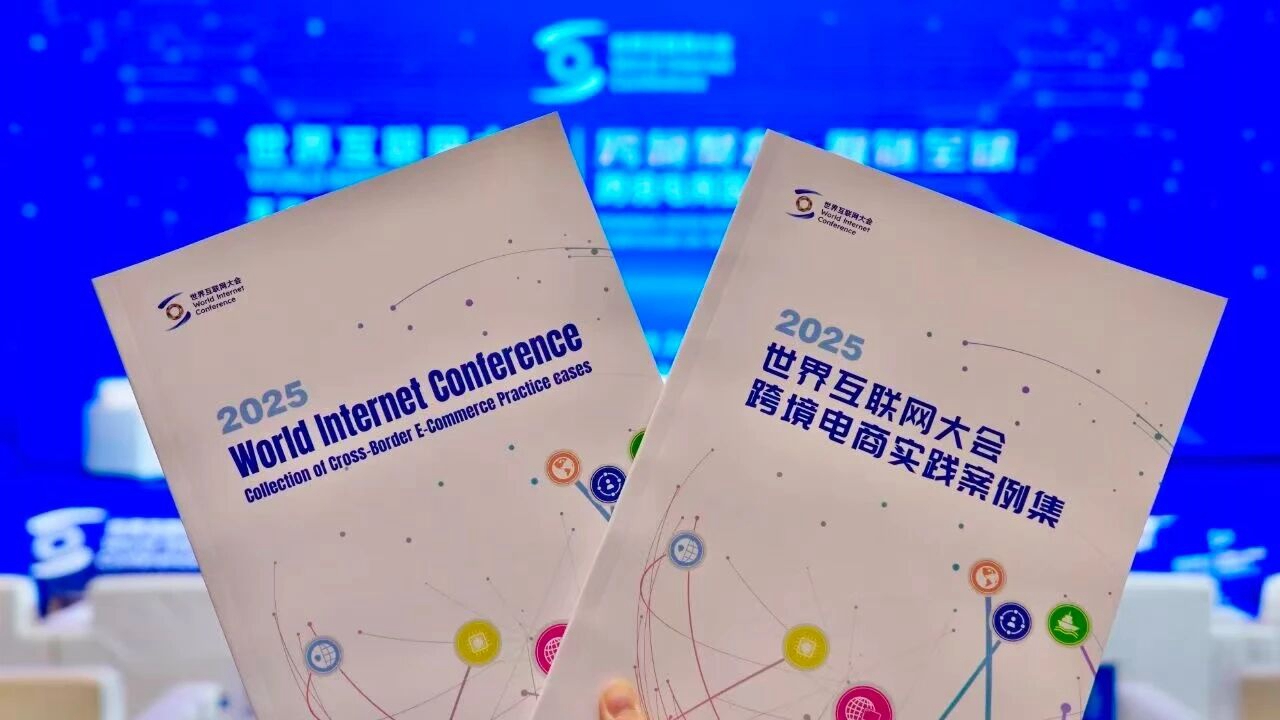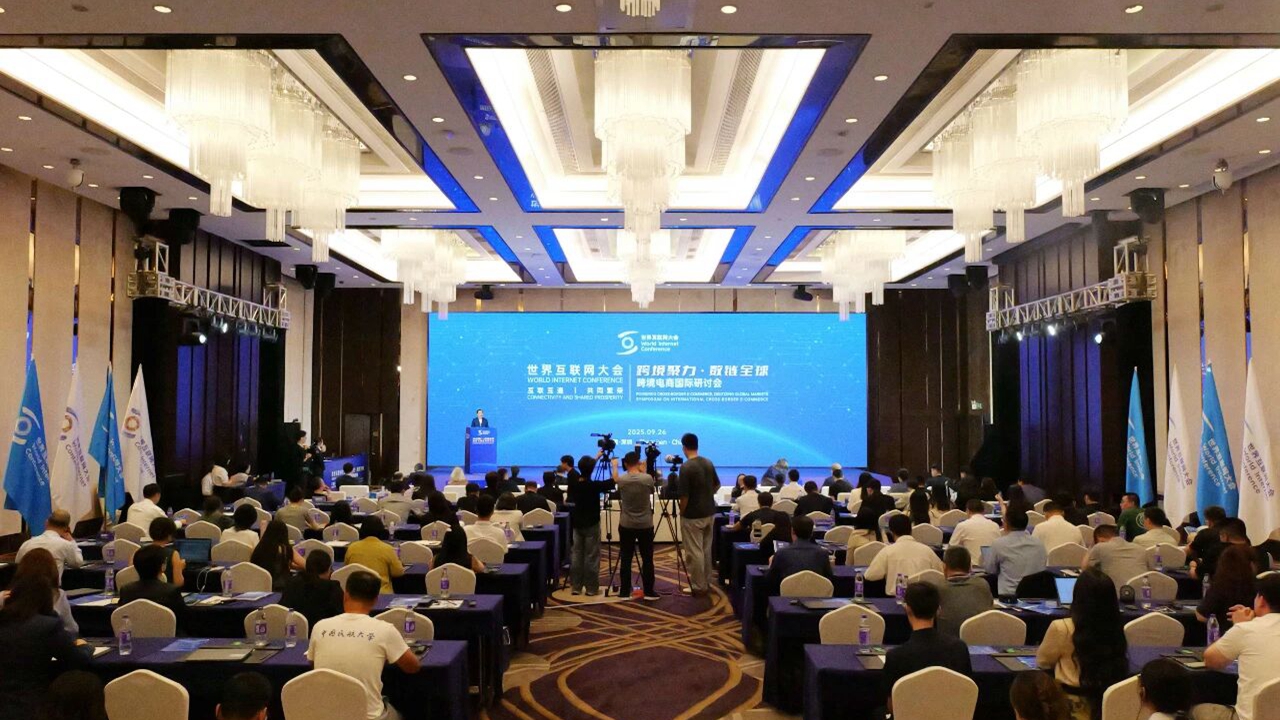Global e-commerce leaders convene in SZ
Writer: Yang Mei | Editor: Lin Qiuying | From: Original | Updated: 2025-09-28
Nearly 200 government officials, diplomats, and industry leaders gathered in Futian District on Friday afternoon for a symposium exploring new approaches to facilitate the booming world of cross-border e-commerce.

Attendees listen intently during the symposium on cross-border e-commerce held in Futian District, Shenzhen, on Friday. Photos courtesy of World Internet Conference
The event, themed "Powering Cross-Border E-Commerce, Digitizing Global Markets," was hosted by the World Internet Conference and organized by the China Council for the Promotion of International Trade (CCPIT) Commercial Sub-Council.
Attendees engaged in extensive discussions on critical topics, including international regulations governing cross-border digital trade, the integration of advanced digital technologies, and collaborative strategies for building a robust global e-commerce ecosystem.
A highlight of the symposium was the release of the "World Internet Conference Collection of Cross-Border E-Commerce Practice Cases (2025)." This comprehensive compilation showcases successful initiatives across seven key areas: digital platforms, trade enterprises, logistics, comprehensive services, innovation, international cooperation, and government guidance.

The "World Internet Conference Collection of Cross-Border E-Commerce Practice Cases (2025)" is officially unveiled during the symposium.
Several Shenzhen-based companies and business associations received recognition for their contributions. Among them were Yantian International's establishment of a logistics support system for cross-border e-commerce collaborative development, SF Technology's efforts in building a high-value fresh produce cross-border digital and intelligent supply chain, and the Shenzhen Cross-Border E-Commerce Association's organization of diverse market activities to foster the industry's growth.
Ren Xianliang, secretary-general of the World Internet Conference, advocated for enhanced collaboration and innovation to foster high-quality growth in cross-border e-commerce, according to an opening speech. He outlined a four-pronged approach:
First, establish multilateral consultation platforms to deepen global cooperation, advance international rules and standards, and reduce compliance costs.
Second, integrate digital and intelligent technologies across industrial chains to promote technology sharing and resource integration, cultivating a symbiotic ecosystem.
Third, create open dialogue platforms to showcase best practices and facilitate the exchange of experiences.
Fourth, strengthen risk management by developing risk identification and compliance systems, enhancing data security, and fortifying safety protocols.

A speaker addresses attendees at the cross-border e-commerce symposium held in Futian District on Friday.
Dr. Ki-Chan Kim, chair of the Organization for Trade Development and Standards Cooperation (ODCCN) and the International Council for Small Business (ICSB), offered a keynote speech focusing on how AI-driven cross-border e-commerce can enable Micro, Small and Medium-sized Enterprises (MSMEs) to participate in global trade fairly, efficiently, and sustainably.
Kim emphasized that while MSMEs stand to gain the most from AI-powered cross-border e-commerce, they are also the most vulnerable in the absence of effective governance and standards. He called for transparent and accountable AI governance systems and highlighted the crucial role of global standards in ensuring interoperability and trust.
“Global standards help MSMEs navigate complex regulatory environments, access multiple markets confidently, and operate on a level playing field,” he stated. He also stressed the importance of empowering MSMEs to fully leverage AI by providing access to affordable AI tools, guidance on their effective application, and frameworks that enable fair competition with larger firms.
Executives from leading e-commerce companies such as Alibaba 1688 Cross-Border Supply Chain, Jumia Global and DHL, also shared their perspectives on how digital technology is reshaping the global value chain of cross-border e-commerce.
The symposium concluded with a panel discussion dedicated to generating innovative ideas and practical approaches for building a more inclusive and efficient cross-border e-commerce ecosystem.